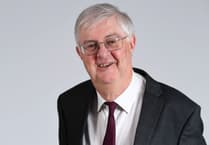Senedd members added their voices to a chorus of calls for fair funding for GPs after more than 21,000 people across Wales signed a petition.
Carolyn Thomas led a debate on the petition submitted by the British Medical Association (BMA) as part of the professional body’s “Save our Surgeries” campaign.
The Labour politician, who chairs the petitions committee, attended a meeting with GPs and told the Senedd their message was clear: the current funding model is unsustainable.
She said: “Over the last two decades, while the number of face-to-face appointments, digital contacts and phone calls has risen, the complexity of the work has been transformed, expenses have risen, and the cost of premises has leapt up.
“Yet the share of the health budget spent on GP services has shrunk..”
Ms Thomas, who represents North Wales added: “In some areas, recruitment and retention is the main worry but in others it's the crumbling fabric of buildings. In others, it is the rapidly ageing population or a growing workload that isn't matched by an equivalent rise in capacity.
“But underlying all of these is money to pay for the services that we all want to see.”
Sam Rowlands, the Conservatives’ shadow health secretary, said eight per cent of NHS Wales funding goes to GPs - lower than levels from 2005/6 - while more than 100 surgeries have closed in the past 12 years.
Plaid Cymru’s Heledd Fychan criticised “huge underinvestment” over the past decade, while Conservatives’ Laura Anne Jones warned that “services are in chaos.”
Mid and West Wales MS Jane Dodds raised concerns about staff welfare and reiterated calls for a premium to recognise the significant challenges for GPs in rural areas.
Responding to the debate on 6 November, Jeremy Miles said surgeries in Wales see an astonishing number of patients with around 1.5 million every month.
Wales’ health secretary stressed: “I want to reassure GPs that we have heard the messages about the huge demands and the pressure on staff welfare.”
Mr Miles said ministers have chosen to commit £1bn over this Senedd term to clear the backlog and reduce waiting times following the pandemic.
He told the Senedd: “By necessity, this means that a larger proportion of funding has gone to secondary care. Redressing this imbalance will be a priority for future funding decisions.
“And we are committed to the principle of providing more care closer to home.”




